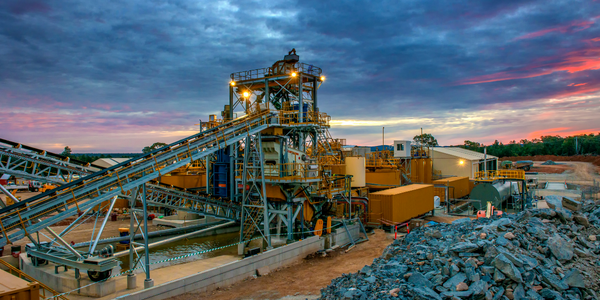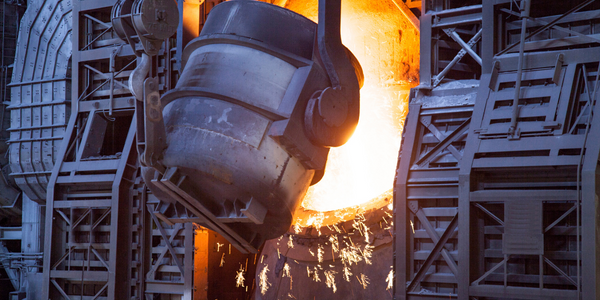Technology Category
- Cybersecurity & Privacy - Security Compliance
Applicable Industries
- Metals
- Mining
Applicable Functions
- Procurement
- Quality Assurance
Use Cases
- Leasing Finance Automation
- Onsite Human Safety Management
Services
- System Integration
About The Customer
Kumba Iron Ore is a multinational mining company with a strong focus on sustainable operations. Operating primarily in South Africa, the company produces a high-grade iron ore that is a key component in steel. Kumba Iron Ore employs nearly 12,300 people and produced close to 39 million tons of iron ore in 2020. The company was facing challenges with its manual approach to safety and compliance, which was causing errors, delays, and inefficiencies throughout its operations. The lack of consistent standards and requirements across different sites was also increasing costs and risk.
The Challenge
Kumba Iron Ore, a multinational mining company operating primarily in South Africa, was struggling with a manual approach to onboarding and risk management across all its work sites. This process was not only time-consuming but also led to errors, delays, and inefficiencies throughout the company's operations. The lack of consistent standards and requirements across different sites further increased costs and risk. Kumba needed a solution that could consolidate and automate its manual processes, thereby improving risk outcomes and streamlining operations.
The Solution
Kumba Iron Ore implemented Passport 360, a solution available in the Microsoft Azure Marketplace, to streamline its contractor onboarding times and reduce costs. Passport 360, powered by artificial intelligence and Microsoft Azure Cognitive Services, integrates with various systems, including ERP, supply chain, safety, and HR. It delivers interactive Microsoft Power BI dashboards to facilitate reporting on overall compliance. Passport 360 also integrates with systems such as SAP SuccessFactors and Honeywell to enhance visibility via concise, meaningful dashboards and actionable insights. The solution provides real-time data management, enabling Kumba to track and action compliance in a proactive and integrated manner. Passport 360's mobile app also allows users to view QHSE requirements on their phones or tablets while on site.
Operational Impact
Quantitative Benefit

Case Study missing?
Start adding your own!
Register with your work email and create a new case study profile for your business.
Related Case Studies.

Case Study
Goldcorp: Internet of Things Enables the Mine of the Future
Goldcorp is committed to responsible mining practices and maintaining maximum safety for its workers. At the same time, the firm is constantly exploring ways to improve the efficiency of its operations, extend the life of its assets, and control costs. Goldcorp needed technology that can maximize production efficiency by tracking all mining operations, keep employees safe with remote operations and monitoring of hazardous work areas and control production costs through better asset and site management.

Case Study
KSP Steel Decentralized Control Room
While on-site in Pavlodar, Kazakhstan, the DAQRI team of Business Development and Solutions Architecture personnel worked closely with KSP Steel’s production leadership to understand the steel production process, operational challenges, and worker pain points.

Case Study
Bluescope Steel on Path to Digitally Transform Operations and IT
Increasing competition and fluctuations in the construction market prompted BlueScope Steel to look toward digital transformation of its four businesses, including modern core applications and IT infrastructure. BlueScope needed to modernize its infrastructure and adopt new technologies to improve operations and supply chain efficiency while maintaining and updating an aging application portfolio.

Case Study
RobotStudio Case Study: Benteler Automobiltechnik
Benteler has a small pipe business area for which they produce fuel lines and coolant lines made of aluminum for Porsche and other car manufacturers. One of the problems in production was that when Benteler added new products, production had too much downtime.

Case Study
Continuous Casting Machines in a Steel Factory
With a very broad range of applications, steel is an important material and has been developed into the most extensive alloy in the engineering world. Since delivering high quality is absolutely crucial for steel plants, ensuring maximum productivity and the best quality production are the keys to competitiveness in the steel industry. Additionally, working conditions in steel factories are not suitable for workers to stay in for long periods of time, so manufactures usually adopt various machines to complete the steel production processes. However, the precision of these machines is often overestimated and the lack of flexibility also makes supervisors unable to adjust operating procedures. A renowned steel factory in Asia planned to improve its Distributed Control System (DCS) of furnaces as well as addressing the problem of insufficient accuracy. However, most well-known international equipment suppliers can not provide a satisfactory solution and local maintenance because the project needed new technologies to more accurately control equipment operations. By implementing Advantech’s automated monitoring and control solution, steel factories can not only improve the manufacturing processes but can also allow users to add additional functions to the existing system so as to make sure the operation runs at high efficiency.

Case Study
Automated Predicitive Analytics For Steel/Metals Industry
Asset to be monitored: Wire Compactor that produces Steel RebarCustomer Faced The Following Challenges:Dependent upon machine uptime.Pressure cylinders within the compactor fail to control compression and speed causing problems in binding the coil.Equipment failure occurs in the final stage of production causing the entire line to stop, can you say bottleneck?Critical asset unequipped with sensors to produce data.



